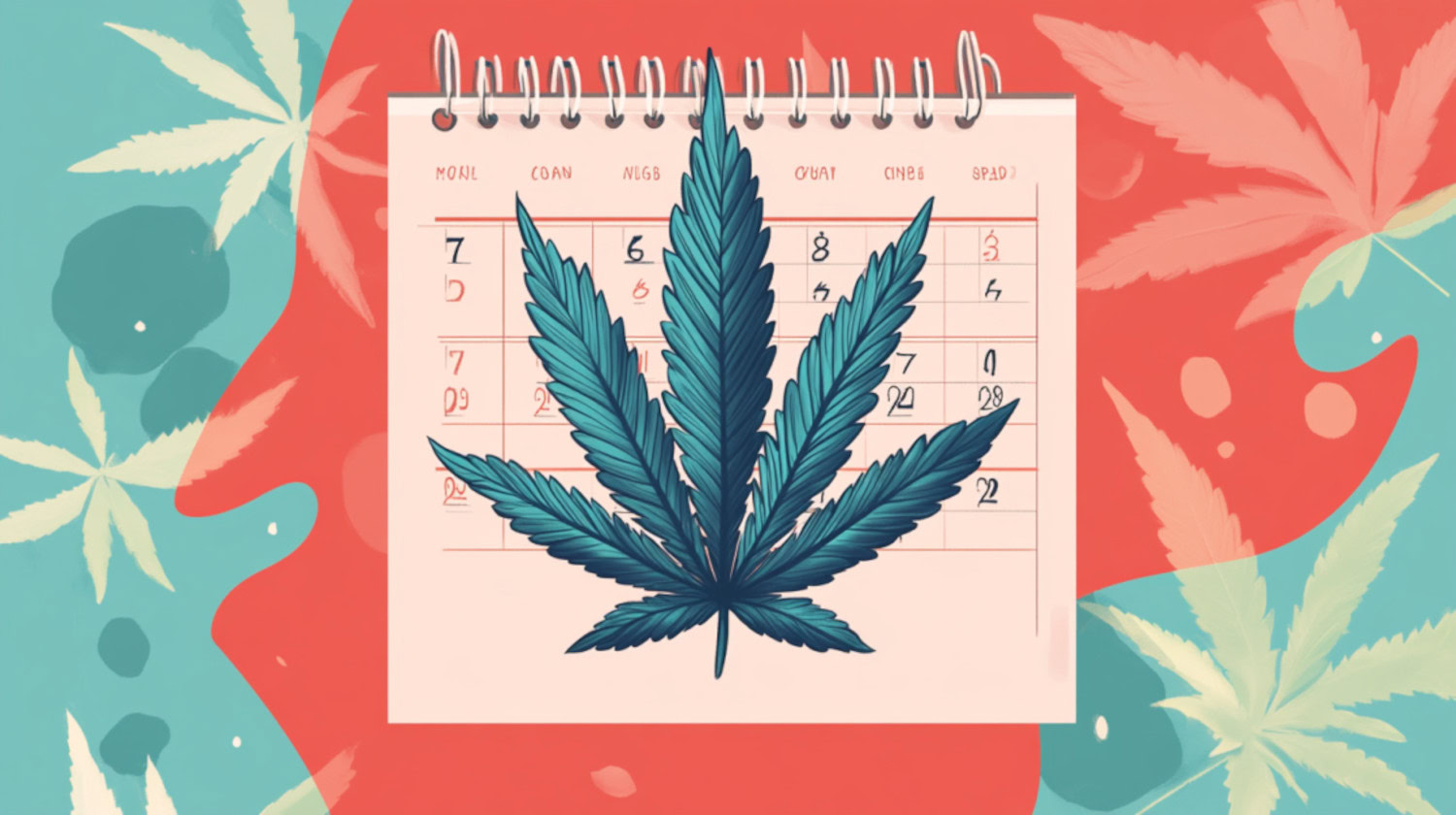In This Article
- Does Weed Dehydrate You?
- What is Cotton Mouth?
- Why Does Cannabis Cause Dry Mouth?
- How to Stop Cotton Mouth from Weed
- Change the method of consumption
- Change the cultivar
- Seek relief
- Avoid alternative causes of dry mouth
- Breathe through your nose
- Maintain healthy oral hygiene
- What to Do After Consuming Cannabis to Avoid Dry Mouth
- References
Having a beverage handy is essential to a pleasant experience when consuming cannabis, as the mouth can become parched. This feeling of thirst is what cannabis consumers refer to as "cotton mouth."
Cottonmouth, or dry mouth, can be a side effect of dehydration but also various medications and other ailments. It typically causes mild symptoms, like bad breath or temporarily altered taste, but it can also increase the risk of oral infection and tooth decay.
So, does weed cause only dry mouth, or does it actually cause dehydration?
Does Weed Dehydrate You?
Dehydration occurs when the body loses more fluid than it takes in, leading to symptoms of dry mouth, extreme thirst, decreased urination, fatigue, or dizziness. Mild cases can be treated by reintroducing fluids into the body.
Severe dehydration may require medical attention, as it can cause bloody stool, irritability, disorientation, diarrhea lasting for more than 24 hours, kidney damage, brain damage, and even death. Various internal or external factors, including diarrhea, vomiting, fever, and excessive sweating, can cause the loss of fluid in the body.
Dry mouth is a common symptom of dehydration, but it is not always caused by dehydration. While a generous amount of research supports the theory that cannabis use leads to dry mouth, there is no evidence that cannabis use directly causes dehydration.
What is Cotton Mouth?

Cottonmouth is an informal term for dry mouth (medically referred to as xerostomia). The term is commonly used to refer to the symptom that often accompanies cannabis use, but it can be used in any instance where dry mouth occurs.
Besides cannabis, dry mouth can be caused by medications, diseases like diabetes, radiation therapies, and nerve damage. Symptoms of dry mouth include trouble chewing, swallowing, tasting, or speaking, dry throat or tongue, cracked lips, mouth sores, bad breath, and oral infections.
Occasional dry mouth, especially when caused by cannabis use, isn’t a cause of concern. However, if the symptom persists, it may indicate an underlying issue needing medical attention.
Why Does Cannabis Cause Dry Mouth?
While no research currently links cannabis use to dehydration, a good amount links it directly to dry mouth.
Researchers have found that the CB1 receptors in the endocannabinoid system (ECS) regulate saliva secretion. Cannabinoids, like THC, when interacting with the CB1 receptors, have been shown to decrease saliva production, which may be why cannabis users frequently experience symptoms of dry mouth. In addition, researchers have found that the endocannabinoid system of other mammals also regulates salivary glands, which may also contribute to dry mouth in other animals if given THC.1
Dry mouth can also be a symptom of cannabinoid hyperemesis syndrome (CHS), a condition typically resulting from daily, heavy cannabis use that develops over several years. Dehydration is another symptom of CHS that may cause dry mouth. CHS may also cause continuous nausea, recurring vomiting, stomach pain, reduced appetite, and rapid weight loss.2
In rare cases, cannabis use can lead to fainting, which may induce headaches, fatigue, or dry mouth.
Although cannabis use can cause dry mouth in a few ways, the symptoms may indicate other medical conditions. Be mindful of your consumption, how it affects you, and other lifestyle and personal health factors that may adversely impact your experience.
How to Stop Cotton Mouth from Weed

The ECS receptors modulate saliva production in the mouth, and THC has been shown to reduce that secretion. For this reason, it may be hard to entirely stop "cottonmouth" from happening after consuming cannabis.
Below are a few tips to help reduce the risk of dry mouth.
Change the method of consumption
Researchers have found that dry mouth is a common adverse effect on the oral health of cannabis smokers that can actually lead to more severe conditions of plaque buildup, tooth decay, and mouth sores.3 To reduce your risk of dry mouth and other symptoms of smoking, it may be best to switch to other consumption methods like edibles, tinctures, or capsules.
Change the cultivar
There is an extensive debate over the legitimacy of the category terms "indica," "sativa," and "hybrid" within the cannabis community. That said, one database of consumer-reported effects found that, although individuals experienced dry mouth from all cultivar types, those labeled “Indica” showed higher rates of dry mouth symptoms.
Seek relief
Experts suggest remedies like chewing sugar-free gum, limiting caffeine intake, and regularly sipping water to alleviate mild cases of dry mouth. Over-the-counter saliva substitutes or specially formulated non-alcohol-based mouthwashes may alleviate more severe cases. Adding moisture to the air through room humidifiers may also help reduce the symptoms of dry mouth.
Avoid alternative causes of dry mouth
Avoiding alcohol-based mouthwashes, smoking cigarettes, or chewing tobacco is best to reduce the risk of dry mouth. It may also help to avoid certain medications, antihistamines, and decongestants that can worsen symptoms. Particular sugar, spicy, salty, or acidic foods and beverages may also increase the risk of dry mouth.
Breathe through your nose
Try not to breathe through your mouth. This tip has several benefits, including increasing oxygen intake and humidifying air breathed.
Maintain healthy oral hygiene
It’s always best to be proactive when it comes to oral care as a smoker. Visit your dentist regularly and use fluoride-based oral hygiene products to reduce your risk of plaque buildup and tooth decay, which can increase the likelihood of experiencing dry mouth.
If your symptoms of dry mouth persist, seek professional medical advice.
What to Do After Consuming Cannabis to Avoid Dry Mouth
Besides water and sugar-free gum and the common remedies for dry mouth, a few alternative antidotes may help relieve these symptoms.
Certain foods like soups, broths, smoothies, and melons, like watermelon and honeydew, can help reintroduce hydration to your body while also taking care of another side effect of cannabis consumption – the munchies.
Water is the ideal source of hydration, but other beverages like coconut water can also help alleviate dry mouth. Certain decaffeinated teas and sugar-free beverages may also be suitable. Avoid alcohol, as the combination of cannabis and alcoholic beverages may increase your risk of several adverse side effects, including fainting and dry mouth.
If symptoms of dry mouth persist despite attempts at reducing the risk or seeking relief, consult a medical professional. It may be best to reduce or completely abstain from cannabis use to avoid further worsening symptoms.
References
- Andreis K, Billingsley J, Naimi Shirazi K, et al. Cannabinoid CB1 receptors regulate salivation. Sci Rep. 2022;12(1):14182. Published 2022 Aug 19. doi:10.1038/s41598-022-17987-2
↩︎ - Chu F, Cascella M. Cannabinoid Hyperemesis Syndrome. In: StatPearls [Internet]. StatPearls Publishing; 2023. https://www.ncbi.nlm.nih.gov/books/NBK549915/
↩︎ - Kakoei S, Nekouei AH, Kakooei S, Najafipour H. The effect of demographic characteristics on the relationship between smoking and dry mouth in Iran: a cross-sectional, case-control study. Epidemiology and Health. 2021;43:e2021017. doi:https://doi.org/10.4178/epih.e2021017
↩︎
The information in this article and any included images or charts are for educational purposes only. This information is neither a substitute for, nor does it replace, professional legal advice or medical advice, diagnosis, or treatment. If you have any concerns or questions about laws, regulations, or your health, you should always consult with an attorney, physician or other licensed professional.




